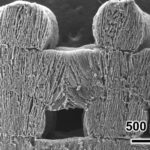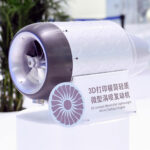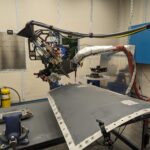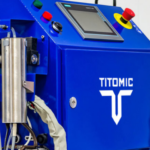Japanese firm Mitsubishi Jisho Design has unveiled a new pavilion at Dubai Design Week 2024 that combines traditional woodworking techniques with modern 3D printing technology. The structure, named The Warp, serves as a teahouse and is constructed from approximately 900 modular tiles made from recycled sawdust mixed with bioplastic.

The pavilion demonstrates a sustainable production system called Regenerative Wood, which repurposes waste materials from CLT manufacturing. The components are 3D printed to precise specifications and designed to interlock using joints inspired by traditional Japanese carpentry methods, requiring no additional fasteners or adhesives for assembly.
The 32-square-meter structure features an organic, curved design that incorporates elements of traditional Japanese teahouse architecture, including a characteristic low entrance called nijiriguchi. The modular components are individually numbered and sized to fit standard shipping boxes, allowing for efficient transportation and repeated assembly at different locations.

The project represents the third prototype in Mitsubishi Jisho Design’s Regenerative Wood program, following earlier experiments with furniture and architectural elements. The initiative is part of a broader effort by the Mitsubishi Estate Group to achieve zero waste in lumber processing while promoting wood-based construction methods.
“The Warp is more than just a pavilion, it is a statement about the future of architecture and design,” said architect Kei Atsumi from the project team. “By blending ancient carpentry with modern 3D printing, we have created a new language of architectural expression.”
Source: dezeen.com
The photography is by DUA Photography.










